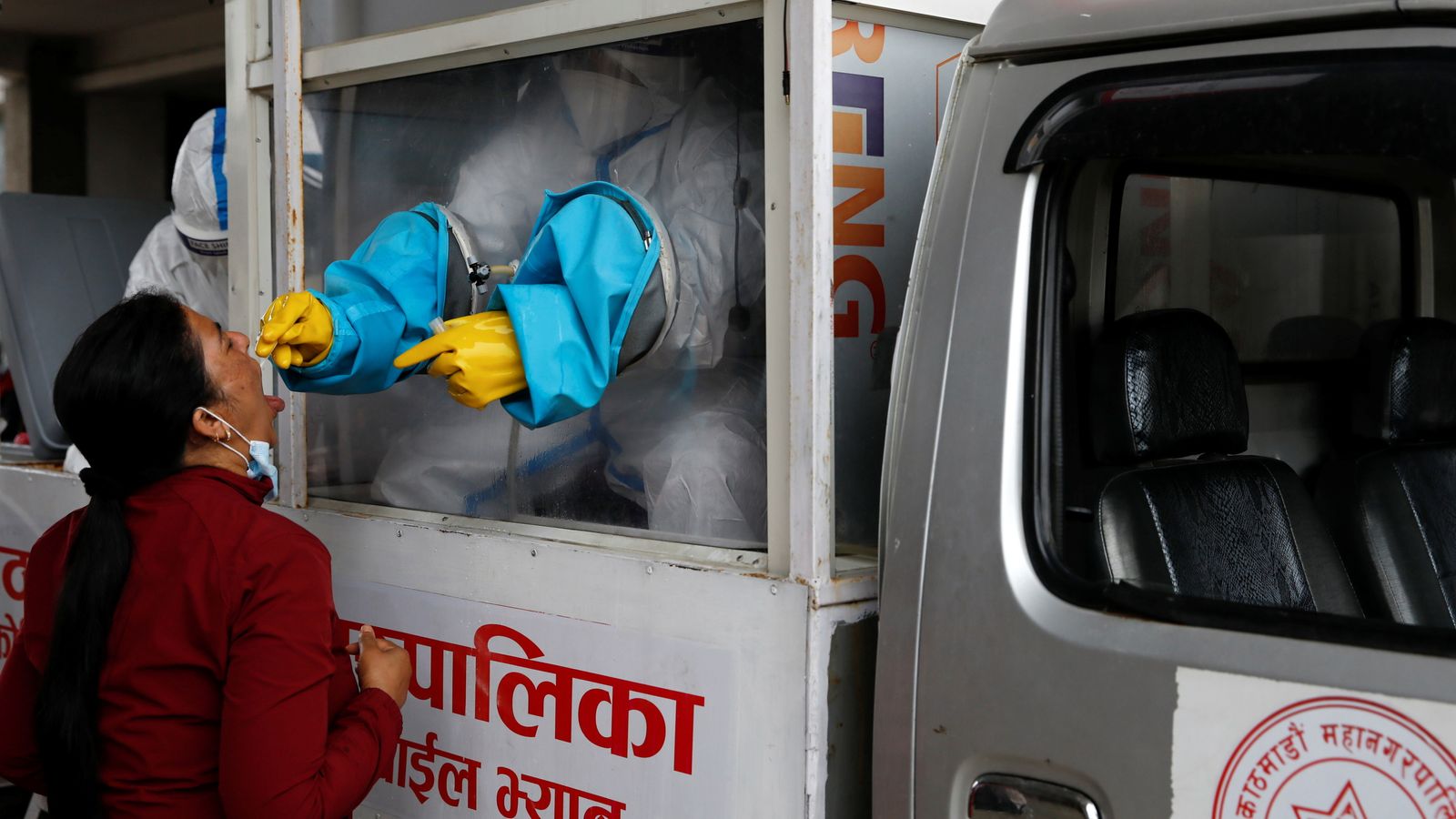UK ministers have repeatedly defended the decision to move Portugal from green to amber on its travel list by saying the threat of the new Nepal COVID variant is behind their reasoning.
But what is the new variant and should we be concerned?
The so-called Nepal COVID variant is a mutation of the Delta variant, first identified in India.
There are thousands of variants of coronavirus, the disease that causes COVID-19, but public health experts focus only on those that have worrying looking mutations or are showing signs of being more dangerous.
These are called “variants under investigation” or “variants of concern”.
Right now, there is no Nepal variant under investigation or variant of concern according to Public Health England (PHE).
Delta, or the Indian variant, remains a “variant of concern”.
So why are people talking about the Nepal variant if it’s not being investigated?
In recent months India has suffered a devastating coronavirus outbreak, with an official death toll recorded at being more than 300,000, though experts suspect the true figure is much higher.
The virus spread to Nepal and while the country does very little genomic sequencing, among the variants that were identified was at least one case of the Delta variant, and that carried a mutation called K417N.
This has become known as the Nepal variant.
Is the Nepal variant in the UK?
Yes. PHE is investigating 20 UK cases.
And Dr Jeff Barrett, director of the COVID-19 Genomics Initiative at the Wellcome Sanger Institute confirmed this.
“This Delta+K417N has been seen in numerous countries, including the UK, Portugal, the USA, and India,” he said.
“It has also been observed once in Nepal (which does very little sequencing), and 14 times in Japan, of which 13 are samples from airport quarantine from travellers from Nepal.”
Why is it hitting the headlines?
When the UK removed Portugal from the travel green list on Thursday, transport secretary Grant Shapps said it was because of rising positivity rates and “a sort of Nepal mutation of the Indian variant that’s been detected”.
On Friday, on Sky News, housing secretary Robert Jenrick added to that narrative.
Please use Chrome browser for a more accessible video player
“If you look at the situation in Portugal, not only has positivity doubled in the past few weeks – that’s pretty fast – they have also got evidence of this new (Nepal) variant and I think it’s really important we exercise caution when we see new variants,” he said.
“We don’t yet know how transmissible they are, how virulent they will be, and most important of all, whether our vaccines will be effective against them – so we have taken a precautionary step to give our scientists time to do the research.”
What does the World Health Organisation say about it?
Interestingly, as yet, the WHO has not officially recognised the discovery of K417N.
On Thursday morning, the WHO said it was “not aware of any new variant of SARS-CoV-2 being detected in Nepal”.
Nepal’s health ministry also says it has no knowledge of any new variant originating in the Himalayan nation.
The UK is a world leader in genomics expertise and has offered to help other countries identify new COVID variants.
The launch of its New Variant Assessment Platform will see other countries offered UK laboratory capacity and advice to analyse new strains of coronavirus.
Will vaccines protect against the new variant?
Scientists are always assessing data on whether the vaccines currently available will be effective against any new variant.
The ones currently being rolled out are expected to provide some protection against new strains of COVID-19.
Experts are also confident that in the event any of the vaccines prove to be less effective against one or more variants, it will be possible to change the composition of them to better their efficacy.
We do know that people who have received the Pfizer/BioNTech vaccine have fewer antibodies targeting the Indian COVID-19 variant compared to other strains.
Levels of these antibodies are lower with increasing age and decline over time, analysis suggests, and provides even more evidence in support for vaccine boosters for the vulnerable come autumn, researchers believe.






















